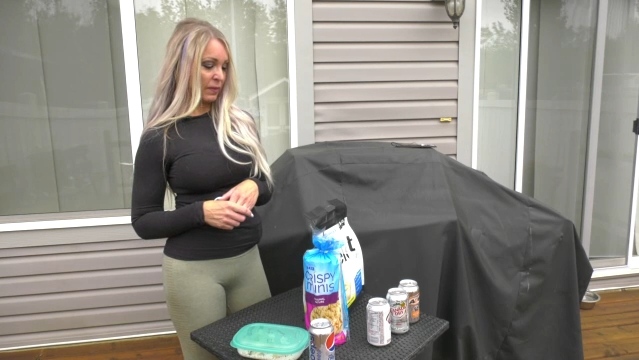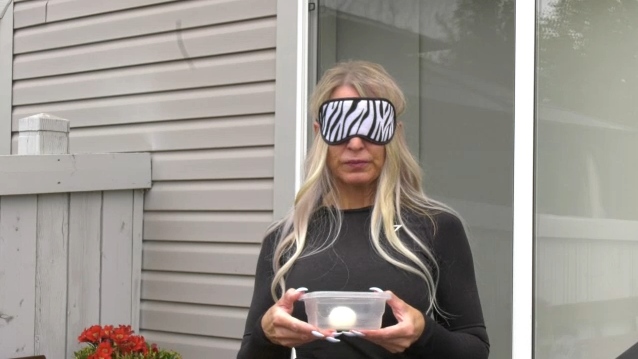'Tastes like COVID, smells like COVID': 10 per cent of coronavirus patients have long-lasting loss of smell: study
A loss of taste and smell has been reported in about 70 per cent of people who get COVID-19, and in some cases, they don’t fully recover those senses.
According to Dr. Marc Tewfik, a rhinologist in Montreal, about 70 per cent of patients who get COVID-19 will lose their sense of smell as an initial symptom and about 70 per cent of those people will make a full recovery. However, 20 per cent will have a partial recovery and 10 per cent will have a long lasting-loss of smell.
“The sense of smell is really an important part of our everyday life,” Tewfik explained. “So much of our lives are dependent on that and for people who don’t have symptoms we take it for granted,” Dr. Raiyan Chowdhury, an ICU doctor and ENT, added.
“I just find that people brush it under the carpet as smell and taste and they don’t understand the anguish,” Lori McCoy, a COVID-19 long hauler, said.
Both doctors told CTV News Edmonton both scent and memory are intertwined, and while patients typically recover from the onset of symptoms from COVID-19, it can take time to fully regain the senses.
“If your neuron is still intact you can still recover it just might take a long time,” Chowdhury reassured.
As for McCoy, she was diagnosed with COVID-19 back in November and lost her ability to taste a few days later.
“I’m eight months in and it seems to be getting worse, not better,” McCoy said.
'WE CALL IT THE COVID SMELL AND TASTE'
McCoy told CTV News she’s now on a “safe foods” diet. She can only eat white rice, white bread, white fish and vanilla protein powder without getting a foul chemical taste in her mouth.
“I can eat lettuce and I can’t eat cucumbers. I had one a little while ago and it tasted like a garbage compost,” she said.
“We call it the COVID smell and taste. Tastes like COVID, smells like COVID.”


According to Tewfik, the nose is unique in the sense that it regenerates cells. To retrain the patient’s nose and their brain to detect smells again, he suggested olfactory training techniques.
He recommends patients find four or five odorants around the home or kitchen, like, cloves, coffee, lemon juice and cinnamon, put them in a small mason jar and smell them twice a day for three months. The success of this method isn’t guaranteed but Tewfik said it doesn’t hurt to try.
McCoy said she’s tried everything to retrain her senses including vitamins, saline rinses, and smell training but so far nothing has worked.
“Food is most people’s joy. You eat it because it makes you happy in the moment,” she recalled.
“Imagine craving something like McDonalds or whatever it is that’s you’re guilty pleasure and you can’t eat it because it tastes like chemical garbage.”
'IT WOULD BE NICE IF YOU HAD A TIME FRAME'
Both Chowdhury and Tewfik said some of the long-term symptoms of not regaining these senses is depression, weight loss or gain and malnutrition.
“If you can’t enjoy the food it’s hard to enjoy that social interaction,” Chowdhury said. “There is some hope for these patients, it may not be permanent.”
McCoy told CTV News her loss of taste and smell has been the most frustrating symptom but she’s also dealing with chronic fatigue, hair loss, migraines and heart palpitations.
“It’s really depressing because you don’t know how long,” she said. “It would be nice if you had a time frame.”
While the symptoms are persistent for a number of patients with long COVID, Tewfik and Chowdhury both said research is continually being done to find out what’s causing it.
“It’s hopeful we’ll have more treatments for these disorders,” Tewfik said.
“The far majority of people who have had COVID have recovered,” Chowdhury added.
With files from CTV News Edmonton’s Touria Izri
CTVNews.ca Top Stories

Canada closes 'flagpoling' loophole for temporary visa holders
Temporary residents of Canada will no longer be able to utilise the flagpoling process to initiate work or study permits, following a ban from the Canada Border Services Agency.
Kieran Culkin, 'Shōgun,' Ali Wong win at Golden Globes
The Golden Globes, which host Nikki Glaser introduced as “Ozempic's biggest night,” got underway Sunday with awards spread around for “Emilia Pérez," “A Real Pain," and “Conclave," as Hollywood's thus-far unpredictable awards season remained hard to pin in the early going.
Driver who entered Canada 'without stopping' at B.C. border crossing arrested: police
A man who illegally blew through the Canada-U.S. border crossing in Surrey, B.C., Sunday morning has been arrested, according to authorities.
'Absolutely devastating': Southern Manitoba golf course clubhouse burns for second time in 4 years
A golf course clubhouse in Morden, Man. went up in flames Sunday for the second time in less than four years, and mere days after its reopening from the previous fire was celebrated.
Thousands are without power due to winter storm hitting Newfoundland and Labrador
Massive waves slammed Newfoundland and Labrador's coastline on Sunday, as a powerful winter storm left thousands without power.
Man responsible for New Year's truck attack previously visited New Orleans, Ontario, Egypt: FBI
The man responsible for the truck attack in New Orleans on New Year's Day that killed 14 people visited the city twice before and recorded video of the French Quarter with hands-free glasses, an FBI official said Sunday.
The Vivienne, star of 'RuPaul's Drag Race UK', dies at 32
British reality show 'RuPaul's Drag Race UK' winner James Lee Williams, aged 32, popularly known as The Vivienne, has died.
Driving into Manhattan? That'll cost you, as new congestion toll starts Sunday
New York’s new toll for drivers entering the center of Manhattan debuted Sunday, meaning many people will pay US$9 to access its busiest part in peak hours.
WATCH Woman critically injured in explosive Ottawa crash caught on camera
Dashcam footage sent to CTV News shows a vehicle travelling at a high rate of speed in the wrong direction before striking and damaging a hydro pole.

































